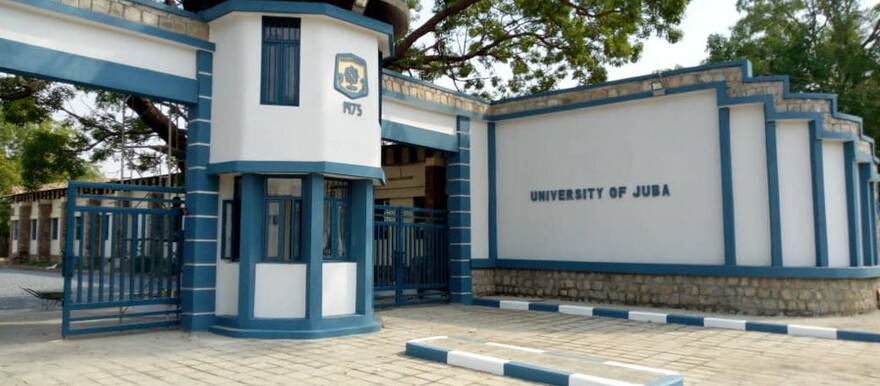The University of Juba on Thursday received USD 1,111,100 million and SSP 5,355,800 in donations and pledges towards the development of infrastructure at the institution.
The administration of the University of Juba launched a USD 3 million fundraising campaign to build lecture halls, a library, and a computer laboratory among other infrastructure.
The highest contributor was President Salva Kiir who donated USD 1 million while the minister of roads and bridges, Simon Mijok Mijak, contributed USD 25,000.
Speaking during the launch of the fundraising drive at the Freedom Hall in Juba, Prof John Akec, the Vice Chancellor of the University of Juba, said he wants to improve the ranking of the university to among the best 100 in Africa through infrastructure development.
“It is our goal to move the University of Juba to be among the one hundred top universities in Africa in the next three years and that is to be in the top 10 percent. To achieve this goal, we have to improve our infrastructure” Prof. Akec said. “The aim is to raise 3 million dollars to supplement the low tuition fees the students are paying in comparison to the region. This will accelerate the infrastructure development and enhance the learning environment in our university.”
The vice chancellor said the University Senate resolved in September to revise tuition fees and levy a USD 100 fee on all students to realize the USD 3 million target.
“We will also be able to develop new programs and accommodate an increasing number of students who are longing to join the University of Juba as students,” he said. “We plan to construct a lecture hall complex that can accommodate other amenities such as a central library, computer labs, and printing services, business spaces, a food court for our staff and visitors and we hope to expand the girls’ hostel, as one of our top priorities in this financial year.”
According to Prof. Akec, the number of students enrolled at the university increased from 10,000 in 2011 to 30,000 this year thus need to improve the infrastructure at the institution.
On his part, Dr. Barnaba Marial Benjamin, the minister of presidential affairs, said the public should support the university.
“This university was born out of struggle and is not a university conceived in any manner. So, the president understands it, your lecturers understand it because their contribution is also based in terms of academic giving based on that fact,” he said. “It is also the best in terms of infrastructure that every citizen in this South Sudan must be proud to support the university which was conceived by our political heroes who have gone.”




